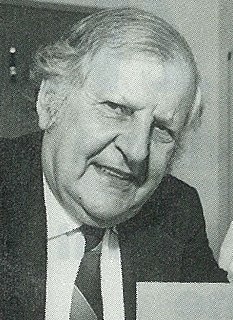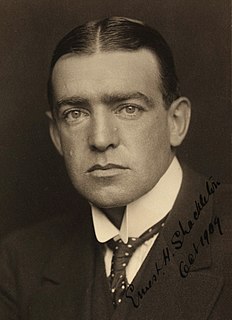A Quote by Alistair Cooke
There is even - as with no other game - a fascinating detective literature, a wry commentary on the human comedy, implicit in the book of rules.
Quote Topics
Related Quotes
'Dating Game' wasn't social commentary, political analysis, Shakespearean-level drama or even blunt-force comedy. It was just the televised equivalent of meeting someone at a bar. But it appealed to our most basic Darwinian instinct: selecting a good mate. You can't go wrong when a show's premise is hard-wired into human DNA.
For the judging of contemporary literature the only test is one's personal taste. If you much like a new book, you must call it literature even though you find no other soul to agree with you, and if you dislike a book you must declare that it is not literature though a million voices should shout you that you are wrong. The ultimate decision will be made by Time.
The literary game is the abyss of human society itself: interactive, playful and tragic. We can't live alone. For me, Robinson [Crusoe] is either a false myth or else he represents the denial of human society. We can't play by ourselves. In literature, it's even more complicated, because one has to play with an indeterminate number of players simultaneously and every game is different. The other player can abandon your game at any time...to go play chess.
I think the detective story is by far the best upholder of the democratic doctrine in literature. I mean, there couldn't have been detective stories until there were democracies, because the very foundation of the detective story is the thesis that if you're guilty you'll get it in the neck and if you're innocent you can't possibly be harmed. No matter who you are.
Tragedy massages the human ego even as comedy deflates it. ... Tragedy pits us against large foes and the trip wire is our own character. ... In comedy we fall afoul of one another. Comedy depends on social life, on our behavior in groups. In tragedy you can observe one human against the gods. In comedy it's one human versus other humans and often one man (or woman if I'm writing it) against her own worst impulses.
Life to me is the greatest of all games. The danger lies in treating it as a trivial game, a game to be taken lightly, and a game in which the rules don't matter much. The rules matter a great deal. The game has to be played fairly or it is no game at all. And even to win the game is not the chief end. The chief end is to win it honorably and splendidly.
You can have your beliefs, but if you're not devout, you can't quite believe that something which grows out of a story, a book or a piece of literature can rise to dominate and make entire nations go to war with each other. I think that's endlessly fascinating, and it's a human construct. It's something that's constructed to occupy the mind and occupy society, and some people would say to control society.
I often use detective elements in my books. I love detective novels. But I also think science fiction and detective stories are very close and friendly genres, which shows in the books by Isaac Asimov, John Brunner, and Glen Cook. However, whilst even a tiny drop of science fiction may harm a detective story, a little detective element benefits science fiction. Such a strange puzzle.
There are comedic rules and formulae and, while these tenets should be respected, especially by a newcomer, perversely you can still succeed by openly contradicting them. Because comedy is about breaking the rules. Even its own rules. Though, as with many disciplines, it is wise to master the basics before you attempt to subvert them.

































